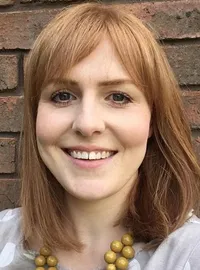WATE 2019 Winner: Rebecca Freeman (SLS)
Why did you start teaching? What (or who) inspired you?
My mum was a primary school teacher and I grew up living next to my junior school, so I saw the work and care that went into planning and delivering engaging lessons and classrooms. My first real experience of teaching was as part of a volunteering project at a nursery school in Rajasthan, India, I was completely out of my comfort zone and I’m sure I was a pretty terrible teacher but I learnt a lot about creative communication.
Then, after university, I worked with students from across the UK, including at Warwick, who were working in collaboration with academics, to challenge perceptions of students as passive consumers of education (students designing teaching spaces, working as educational researchers, undergraduate researchers, enquiry-based learning facilitators and peer mentors). I saw the transformational impact on students and staff when they were given space to collaborate in teaching development and this continues to inspire what I do.
Is there anything you wish someone had told you when you started out?
It’s always a bit scary, and that’s a good thing because it means you care and its important.
If you were mentoring a first-time teacher, what advice would you give?
Start with the students, where do you want them to get to and where are they now? It’s not always easy in large groups but think about activities and assessments that value what students bring to learning as well as what you want them to know.
That moment before you start a session always seems a bit daunting, think through your introduction and develop a good teacherly “Right, let’s get started!”
Think about the breaks, give students time to chat and reflect and build it into the session.
What advice/top tips would you give to more experienced teachers?
Take the time to talk about teaching and observe others. One of the great things about the Science Communication module, is seeing the different approaches taken by the teachers on the course and how students respond to different styles and activities.
What new technologies are you currently using to enhance your teaching? What are your top tips for using them?
Our Science Communication students write short blogs in response to elements of the module and produce a 3-minute video, communicating an element of science to their chosen audience. For me, the technology is the enabler, so we give an overview of how to use it, but the focus has to be the content that students produce and their creative engagement with the course.
What new or future teaching innovations are you looking forward to?
This year I’ve led a WIHEA project with IATL, the SU and students from different departments and I’m really looking forward to seeing it in action. We’ve designed a series of events for students to experience a taste of interdisciplinarity during Welcome Week in order to bring one of the distinctive elements of a Warwick education, to life. We’ve planned a varied programme of a WALL-E screening and interdisciplinary discussion; a practical session to build the perfect interdisciplinary sandwich and a series of IATL module taster sessions and I’m looking forward to seeing how students respond to them.
What does winning a WATE award mean to you?
Having the support of students and staff to win a WATE award means a huge amount to me. It has taken staff, academic and professional services, and students, working together as part of a community, to make the changes in Life Sciences that mean it is such a positive environment in which to learn and teach, and this award reflects their commitment as well as my own.
What do you enjoy the most about teaching? What’s the best part of your job?
In Life Sciences we have worked with students to develop all aspects of our teaching and feeling that what we are doing is relevant, and makes an impact on student success, makes it enjoyable. Seeing the achievements of our students, and what they go on to do, and of colleagues (WATE awards, promotions, HEA Fellowships), is a constant source of inspiration.
What are the biggest challenges faced by teaching staff? How do you overcome these?
Given the demands on everyone’s time it is really easy to feel overwhelmed. For me, making some time, however short, to share practice and experience with others always helps me focus on the bits where I can have an impact.
What lessons have you learned from your students?
Difficult to know where to start with this one; a lot. Through their assessments and discussions, new ways of looking at the world and some of the big scientific challenges. Beyond that, how to transform institutions for the better, tackle attainment gaps, become more inclusive spaces and ensure we are relevant to society.
If you could write a recipe for the perfect inspiring teacher, what ingredients would you need?
1 measure of openness to new ideas
2 measures of creativity and personality (without the ego)
A healthy dose of empathy
A sprinkling of time to think and prepare
Enjoyed hearing from Rebecca? See the full list of 2019 winners and read other interviews.

